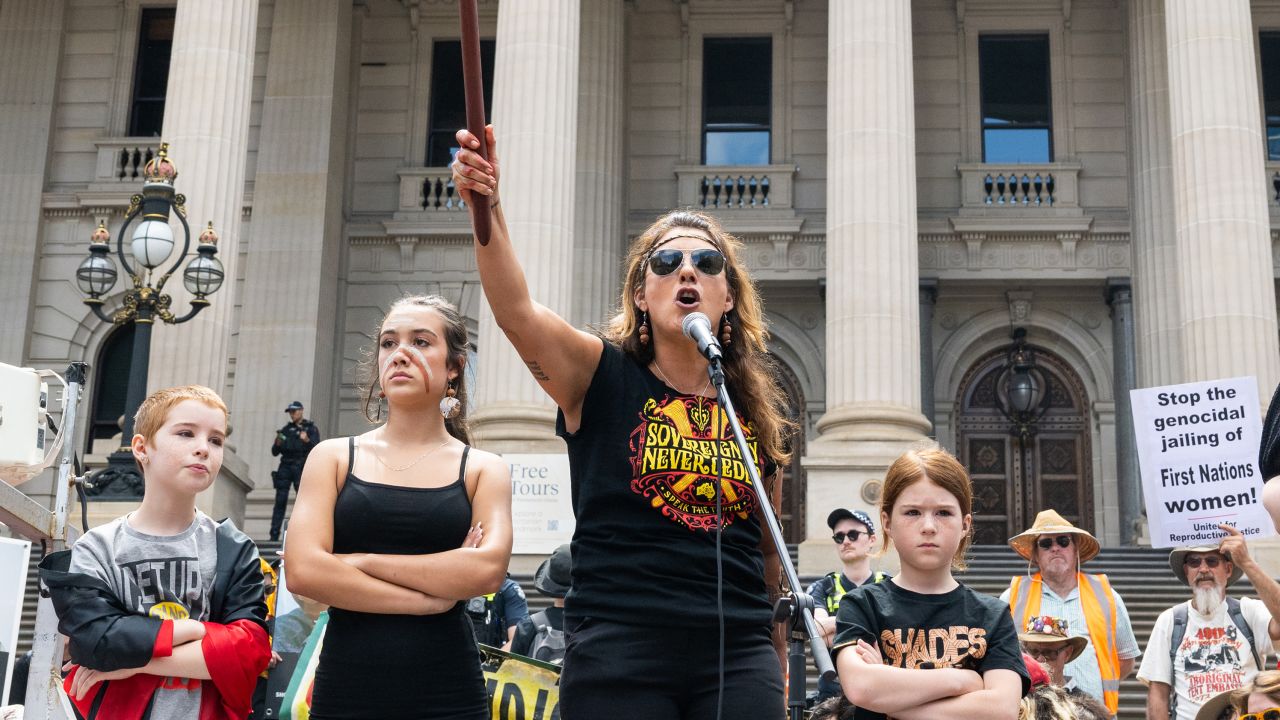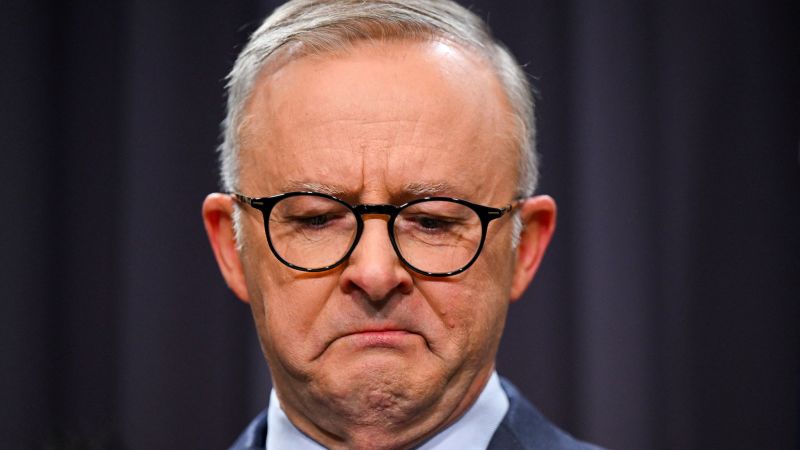Brisbane, Australia
CNN
—
Australians have learned the question they’ll be asked later this year in the country’s first referendum in 24 years, a vote deemed so significant that the Prime Minister paused to gather his emotions Thursday as he announced the details.
On a date to be set, Australians will be asked whether the nation’s Indigenous peoples, which make up 3.2% of the population, should be recognized in the Constitution.
Australian Prime Minister Anthony Albanese announced the question during a news conference: “A proposed law to alter the constitution to recognize the First Peoples of Australia by establishing an Aboriginal and Torres Strait Islander voice. Do you approve this proposed alteration?”
“That’s the question before the Australian people, nothing more, but nothing less,” said an emotional Albanese, who paused for a few seconds mid-sentence as he thanked Indigenous leaders for their patience.
“This moment has been a very long time in the making, yet they have shown such patience and optimism through this process. And that spirit of cooperation and thoughtful, respectful dialogue has been so important at arriving at this point in such a united fashion,” he said.
A “yes” vote would recognize Aboriginal and Torres Strait Islanders in the Constitution and create an Indigenous body to advise the Federal Parliament on policies and projects relating to Indigenous people.
Minister for Indigenous Australians Linda Burney called Thursday’s announcement of the wording “a truly historic day.”
“Today we take a big step forward on the long journey to constitutional recognition, through voice,” said Burney, a member of the Wiradjuri nation. “We believe that this is so just. We believe this will appeal to the fairness of the Australian people. And we believe that we have history on our side.”
The wording of the question will be introduced to Parliament next week, and a parliamentary committee will be formed to consider submissions before a parliamentary vote in June.
The referendum itself is slated for sometime between October and December this year.
The government says it’s the country’s best chance to correct the wrongs of the past, committed after the colonization of the land with little regard for the views or welfare of its original inhabitants.
More than 200 years later, Aboriginal and Torres Strait Islanders still suffer much poorer health, mortality and economic outcomes than non-Indigenous members of the Australian population, according to government statistics.
Successive administrations have tried to “close the gap” but incarceration rates of Indigenous people remain persistently high, and advocates argue racist attitudes are embedded within society adding a further barrier to progress.
However, despite a strong government push for “yes,” the outcome is not guaranteed.
The main opposition Liberal Party, voted out of office last May, has yet to announce whether it’ll back a vote in favor of the Voice to Parliament.
Liberal leader Peter Dutton says he wants to see more detail about how it would work, a request considered by some as entirely reasonable and by others as a spoiler tactic to sow doubt.
The National Party, which traditionally represents rural voters, has already ruled out supporting the Voice, calling it “another layer of bureaucratic red tape” that won’t advance the interests of Indigenous people.
Some Indigenous groups say it’s not enough – they want Australia to first end its status as the only Commonwealth country not to have signed a treaty with its Indigenous population.

The idea for a Voice to Parliament came about through a process of consultation with hundreds of diverse Indigenous groups who outlined their wishes in the Uluru Statement from the Heart.
To pass, the referendum needs to win the majority of votes nationwide, and the majority of votes in the majority of states. Only eight of 44 referendums have ever been approved in Australia.
The last one was held in 1999 when Australians voted down calls for a republic.
Albanese said the wording of this year’s vote was devised during months of consultation with Indigenous groups and legal experts.
“This form of words is legally sound, and it is a form of words that all of us have confidence will gain the strongest possible support from the people of Australia at a referendum and deliver the best possible outcomes in the years ahead,” he said.

